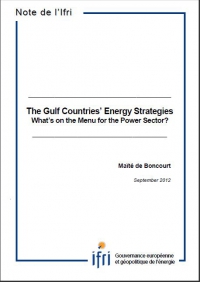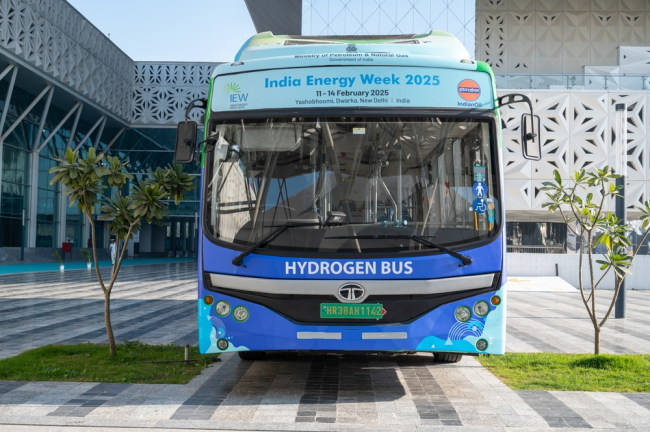The Gulf Countries' Energy Strategies: What's on the Menu for the Power Sector?

The futuristic green city of Masdar in the United Arab Emirates or the latest announcements of Saudi Arabia which might now well become the new Eldorado for solar energy companies have a clear marketing varnish. But if they are showcases of green ambitions, they nonetheless reflect the situation the Gulf States face today driven by the development of heavy industry and petrochemicals but first and foremost by the rapid population growth (around 2% for Saudi Arabia and 3% for Kuwait; Qatar and the Emirates have higher population growth rate due to immigrants).
Demand for power is rising as fast as buildings, even more so as most of the water consumed is desalinated. While their economies still largely depend on oil and gas revenues, burning increasing amounts of fuels domestically into power stations is not sustainable. These countries are facing an energy paradigm with serious implications. Faced with this challenge, the Gulf States are thinking of solutions. They are moving at different speeds towards the diversification of power generation sources and the restructuration of their power sector. Recent years have therefore evolved under the banner of reform and a strong institutional activity in most states.
This comparative study intends to evaluate the energy paradigm in the GCC, and the responses given by some of the monarchies. This paper is written in the middle of the reform process, and therefore does not claim to evaluate the results of these measures. Rather it looks at the speed at which these reforms are being undertaken, the tools used and advantages across the countries, and the type of reforms that are conducted. It focuses on three specific countries: Saudi Arabia, the UAE and reports on other states to a lesser extent. The final section assesses the impact of the economic crisis and the regional political turmoil on the reform process. This paper argues that while high oil prices provide a large tax base for states investments in new and alternative power generation, the fear of the contagion of political turmoil will slow the privatization process and hamper price reforms. Additionally, the global credit crunch could have a negative impact on power plants tenders.

Available in:
Regions and themes
ISBN / ISSN
Share
Download the full analysis
This page contains only a summary of our work. If you would like to have access to all the information from our research on the subject, you can download the full version in PDF format.
The Gulf Countries' Energy Strategies: What's on the Menu for the Power Sector?
Related centers and programs
Discover our other research centers and programsFind out more
Discover all our analysesIndia’s Green Hydrogen Strategy in Action: Policy Actions, Market Insights, and Global Opportunities
India is poised to remain the world’s fastest-growing major economy, and this rapid growth is driving a sharp rise in energy demand. As the most populous country on the planet, India urgently needs to decarbonize its energy systems.
Water in Mexico: an Emergency that Will Wait
Access to water is already and will become increasingly problematic for Mexican economic actors due to the progressive scarcity of the resource resulting from climate change, a geographical distribution that does not coincide with that of the population or economic activity, and management that has so far been far too lax.
AI, Data Centers and Energy Demand: Reassessing and Exploring the Trends
The information and communication technologies sector today accounts for 9% of global electricity consumption, data centers for 1-1.3%, and artificial intelligence (AI) for less than 0.2%. The growing energy demands of cloud services first, and now AI workloads (10% of today’s data centers electricity demand), have exacerbated this trend. In the future, hyperscale data centers will gain shares amongst all kinds of data centers and AI will probably account for around 20% of data centers electricity demand by 2030.
Unlocking India’s Energy Transition: Addressing Grid Flexibility Challenges and Solutions
India is rapidly scaling up its renewable energy (RE) capacity, adding 15–20 GW annually, but the ambitious goal of 500 GW of non-fossil capacity by 2030 is at risk unless the pace accelerates.









